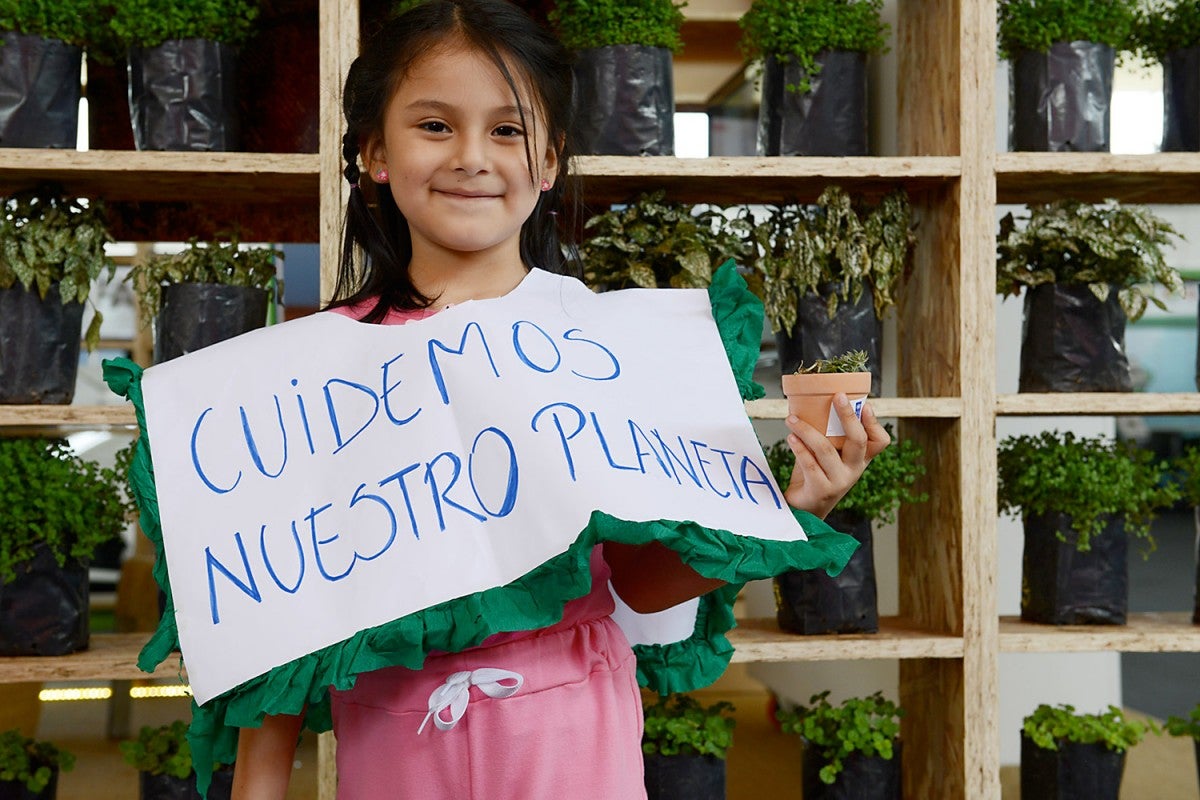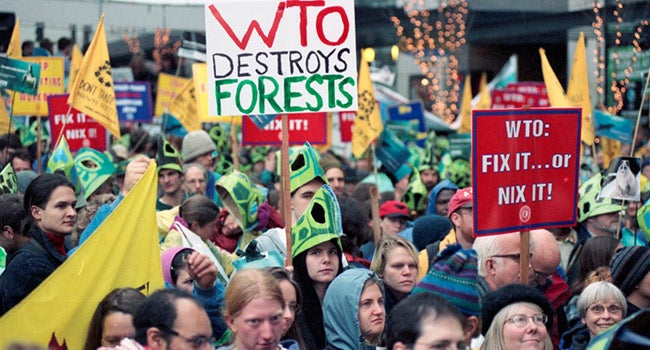As leaders from around the world gather in Lima, Peru this week to discuss global cooperation in addressing climate change, a woman in Guatemala will struggle to feed her family from a farm plot that produces less each season.
A mother in Ethiopia will make the difficult decision to take her daughter out of school so the girl can help gather water, which requires more and more time with each passing year.
A pregnant woman in Bangladesh will worry about what will happen to her and her children if the floods come when it is her time to deliver.
These women, and millions of women around the world, are on the front lines of climate change. The impacts of shifting temperatures, erratic rainfall, and extreme weather events touch their lives in direct and profound ways. For many, these impacts are felt so strongly because of gender roles — women are responsible for gathering water, food and fuel for the household. And for too many, a lack of access to information and decision-making exacerbates their vulnerability in the face of climate change.
This week, our leaders will meet in Lima to lay the critical foundations for a new global agreement under the United Nations Framework Convention on Climate Change. They seek to resolve important questions about collective action to reduce the pollution that causes climate change, to build resilience in communities to the climate change impacts we can’t avoid, and to provide the finance needed for climate-smart development around the world. It is critical that in all of these efforts, our leaders recognize the importance of ensuring that climate change solutions are gender-responsive.
What does it mean for climate change solutions to be gender-responsive? It means, for example, that strategies for renewable energy take into consideration how women access and use fuel and electricity in their homes. It means that vulnerability assessments and emergency response plans account for how women’s capabilities and skills differ from those of men. And critically, it means women are included at decision-making tables internationally, nationally, and locally when strategies and action plans are developed.
Too many women — more than 222 million around the world — lack the information and services that would enable them to determine the number, timing, and spacing of their children
Beyond direct assessments of women’s unique vulnerabilities and capabilities, we must also examine and support pathways to greater empowerment for women. When women are empowered, their families, communities, and nations benefit. Responding to climate change offers opportunities to enhance these pathways to empowerment.
A vital but often overlooked aspect of women’s empowerment is ensuring access to reproductive health and voluntary family planning services. Too many women — more than 222 million around the world — lack the information and services that would enable them to determine the number, timing, and spacing of their children. This unmet need hurts women and families, leading to high rates of unintended pregnancy and maternal and infant mortality.
Conversely, when women and men have access to high quality reproductive health and family planning services, and these services are embedded within essential public health programs, families are more likely to be healthy and are better able to access employment and education opportunities for themselves and their children. These are important foundations for reducing gender and economic inequalities and building resilient communities. Reducing unintended pregnancies worldwide will also slow the rate of population growth, also contributing to a more sustainable future.
The links between reproductive health, women’s empowerment, and climate change were documented in the most recent report of the Intergovernmental Panel on Climate Change, which noted the importance of meeting needs for family planning for both mitigation and adaptation, and in developed and developing countries alike. According to the report, “Meeting the need for family planning services in areas with both high fertility and high vulnerability to climate change (such as the Sahel region of Africa) can reduce human suffering and help people adapt to climate change. This is also important in rich countries like the U.S., where there is unmet need for services as well as high CO2 emissions per capita.”
Empowering women is key to unlocking progress on climate change. In September during the UN Secretary General’s Climate Summit in New York, UN Women and the Mary Robinson Foundation – Climate Justice brought together more than 130 women leaders for a forum on “Women Leading the Way: Raising Ambition for Climate Action.” We heard remarkable stories of women’s leadership in addressing all aspects of the climate crisis.
Women have proven skills in managing natural resources sustainably and adapting to climate change, and they are crucial partners in protecting fragile ecosystems and communities that are increasingly vulnerable to the impacts of climate change. Indeed, if we are serious about tackling climate change, our leaders in Lima this week must ensure that women are equal partners and drivers of climate change decision-making.
 A young girl holds a sign that reads “Cuidemos Nuestro Planeta” (“We Care For Our Planet”) at the 20th meeting of the United Nations climate convention (COP-20) in Lima, Peru.
A young girl holds a sign that reads “Cuidemos Nuestro Planeta” (“We Care For Our Planet”) at the 20th meeting of the United Nations climate convention (COP-20) in Lima, Peru.
